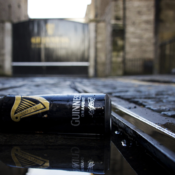
19 August 2019
Water, Water Everywhere: Escape of Water
The continuing rise in escape of water claims has been identified by the Association of British Insurers (ABI) as an area of focus for 2018.
In 2016, escape of water contributed to over a quarter of all domestic property insurance claims, ranking above ‘weather’ and 'fire and explosion'. Between January and September 2017, these claims totalled £483m – an increase on the previous year. However, it’s also an issue in the commercial space. Water damage can have various repercussions depending on the level of severity. In the home it can damage contents and furnishings, plus require time and money to organise repairs. From offices to retail outlets and wholesalers to manufacturers, potential consequences include interruption to business, impact upon supply chains and damage to stock. Landlords may suffer financially from relocation or loss of tenants, in addition to building repairs. Many insurers make an important distinction between escape of water and flood. The former refers to water damage which originates inside a home or property, either from a burst pipe or leaking appliance, such as a dishwasher or washing machine. Conversely, insurers often categorise ‘flood’ as arising from external sources, whether natural or man-made. COMMON CAUSES So, what are the common causes of escape of water? A key factor can be cold weather and freezing temperatures. During such conditions, the water in pipes freezes and expands, leading to a build-up of pressure and subsequent rupture of the pipe. It’s been estimated that, in one day, an amount equivalent to 48 bathtubs full of water can escape from one burst pipe3. Other causes could be leaks from a faulty appliance, such as a washing machine or from around a bath or shower tray. Often relatively simple to repair if addressed early, the problem can be more complicated when occurring in an apartment block or flat with consequent water damage spreading to the flats below. Other reasons for escaping water include substandard workmanship, plumbing equipment failure and both accidental and deliberate physical damage. Find out about our property owners insurance MANCHESTER HOTEL In August 2015, in the early hours of the morning, guests were evacuated from around 180 rooms of a Manchester hotel after a water pipe burst and the resulting leak caused extensive water damage. Despite the incident being resolved reasonably swiftly, the hotel was required to call the emergency services, operate the evacuation procedure and find alternative accommodation for some guests. Additionally, the hotel suffered a degree of both financial and reputational damage. WARNING SIGNS There are numerous signs which can signal an imminent escape of water in a property. One is a suspicious smell emanating from the plumbing system; this can indicate a water blockage somewhere and a potential leak on the horizon. It’s a good idea to keep an eye on copper pipe joints and check for any green colouring as this may also imply a leak. Plastic plumbing joints should also be inspected regularly to check for any cracks or gaps which could lead to water escaping. Further, any sign of frost or ice on taps should act as a red flag. Both inside and outside taps can be affected. PREVENTATIVE MEASURES The good news is that there are practical steps property owners can take to reduce the risk of a leak. Some key recommendations include: • ensuring that water pipes are correctly lagged to minimise the possibility of freezing water bursting the pipe as the pipework thaws • keeping outdoor pipes insulated with foam • turning off outdoor pipes during freezing conditions, provided their use is not required • keeping the heating on low in colder temperatures to prevent water in pipes freezing • checking water meter readings for significant variances in usage, since a higher reading could indicate a leak • being familiar with the location of the main water stopcock and ensuring it’s in full working order • installing leak detection devices that identify the leak, shut off the water supply and raise the alarm. Where pipes appear to be frozen, but not yet burst, it’s recommended to turn the water off at the stopcock. The pipe can then be gently thawed with either a hot water bottle or towel soaked in hot water. EMERGING TECHNOLOGY Recently, a number of ‘smart leak’ devices have come into the market which property owners can install in their premises in areas susceptible to water damage, such as under kitchen sinks or in bathrooms. These devices usually take the form of Wi-Fi sensors, some of which connect to a smart-home hub and send alerts to a mobile phone or tablet. These can be extremely useful in alerting someone to a leak before it develops into a serious issue. EMPTY PROPERTY It’s important not to neglect taking precautions against escape of water in empty premises. Where property is left unoccupied for any length of time it’s a good idea to turn the water supply off at the main stopcock and drain down the heating system and pipes so there’s no remaining water to freeze. Water supplies, however, should remain turned on where it is necessary for sprinkler protection; in such cases, background heating should be provided to the premises and/or trace heating provided to the pipework. If you are unable to visit the premises regularly, consider asking someone to check on the property to ensure all is in order. In all cases, seeking advice from a qualified plumber, heating engineer or your sprinkler maintenance company is recommended. INSURING AGAINST WATER DAMAGE Property insurance typically covers loss arising from burst pipe and resulting water damage. However, if the damage occurs due to a slow leak which was ignored, then the policy will likely be rendered invalid. Also, most insurance policies will exclude escape of water damage where a property has been unoccupied beyond a certain period, although this will vary from policy to policy. It’s important to remember that any policyholder is responsible for taking due care and reasonable measures to prevent incidents from occurring. Failure to demonstrate this was the case could result in an insurer refusing to meet the claim. In empty buildings, where an issue may go unnoticed for longer, there’s increased risk of third party public liability claims. Property owners insurance should be considered here to mitigate the risk of exposure. In any case, it’s best to check with an insurer on the level and suitability of cover, to avoid ending up in deep water. Source: Allianz Insurance Plc Contact us on 01245 449060Recent Posts
Ascend Broking
How AI is Revolutionising Fleet Safety
Ascend Broking
The Risks of Leaving Tools in Vehicles Overnight
Ascend Broking





